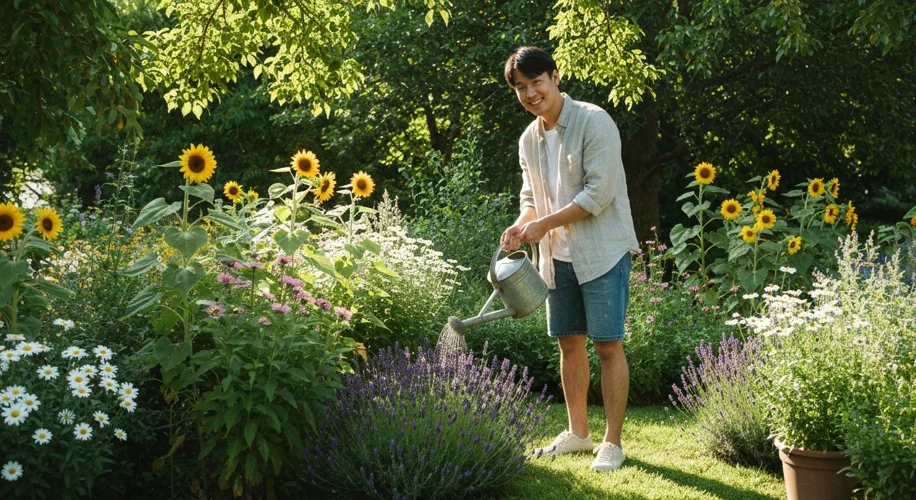Hey everyone, Elias here! You know, I’ve always been fascinated by how we can live a little lighter on the planet, right in our own homes and backyards. It’s not about grand gestures, but small, consistent actions that add up. Today, I want to share some simple, practical ways we can all embrace more sustainable living.
Water-Wise Gardening
Water is precious, especially in the garden. One of the easiest ways to conserve is by choosing native or drought-tolerant plants. They’re naturally adapted to our local climate and require less watering once established. Another trick? Mulching! A good layer of mulch around your plants helps retain soil moisture, reduces weed growth, and keeps soil temperature more stable. Think of it as a cozy blanket for your garden soil.
When you do water, try to do it in the early morning or late evening. This minimizes water loss through evaporation. And consider a rain barrel. Collecting rainwater is a fantastic way to have a free, natural water source for your plants.
Tackling Household Waste
Reducing waste starts with being mindful of what we bring into our homes. Before buying something new, ask yourself if you really need it. Can you repair something you already have? Can you borrow it?
Composting is a game-changer for kitchen and yard waste. It turns scraps like vegetable peels, coffee grounds, and grass clippings into nutrient-rich soil for your garden. It’s amazing how much less trash you’ll have when you start composting. Plus, your plants will thank you!
When it comes to packaging, look for items with minimal or recyclable packaging. And don’t forget reusable bags, water bottles, and coffee cups – simple swaps that make a big difference over time.
Creating a Backyard Habitat
Our gardens can be so much more than just plants; they can be havens for wildlife. Attracting pollinators like bees and butterflies is crucial for our ecosystem and for many of the fruits and vegetables we love to grow. Planting a variety of native flowers that bloom throughout the seasons provides a continuous food source for them.
A simple bird bath can offer a vital water source, and leaving some fallen leaves or a small brush pile can provide shelter. Even a small patch of native grasses can offer a safe space for insects.
Backyard Chickens: A Sustainable Choice?
For many of us, the idea of backyard chickens is appealing. Beyond fresh eggs, chickens are fantastic at reducing food waste. They happily gobble up many kitchen scraps that might otherwise end up in the landfill. Their manure, when properly composted, is also a wonderful fertilizer for the garden.
Of course, it requires a bit of commitment, but the rewards – fresh eggs, reduced waste, and the simple joy of watching them – can be incredibly fulfilling. It’s a very tangible way to connect with our food system and live a little more sustainably.
Embracing sustainable living isn’t about perfection; it’s about progress. By incorporating even a few of these practices, we can create homes and gardens that are healthier for us and for the planet. What are your favorite eco-friendly tips? I’d love to hear them!

